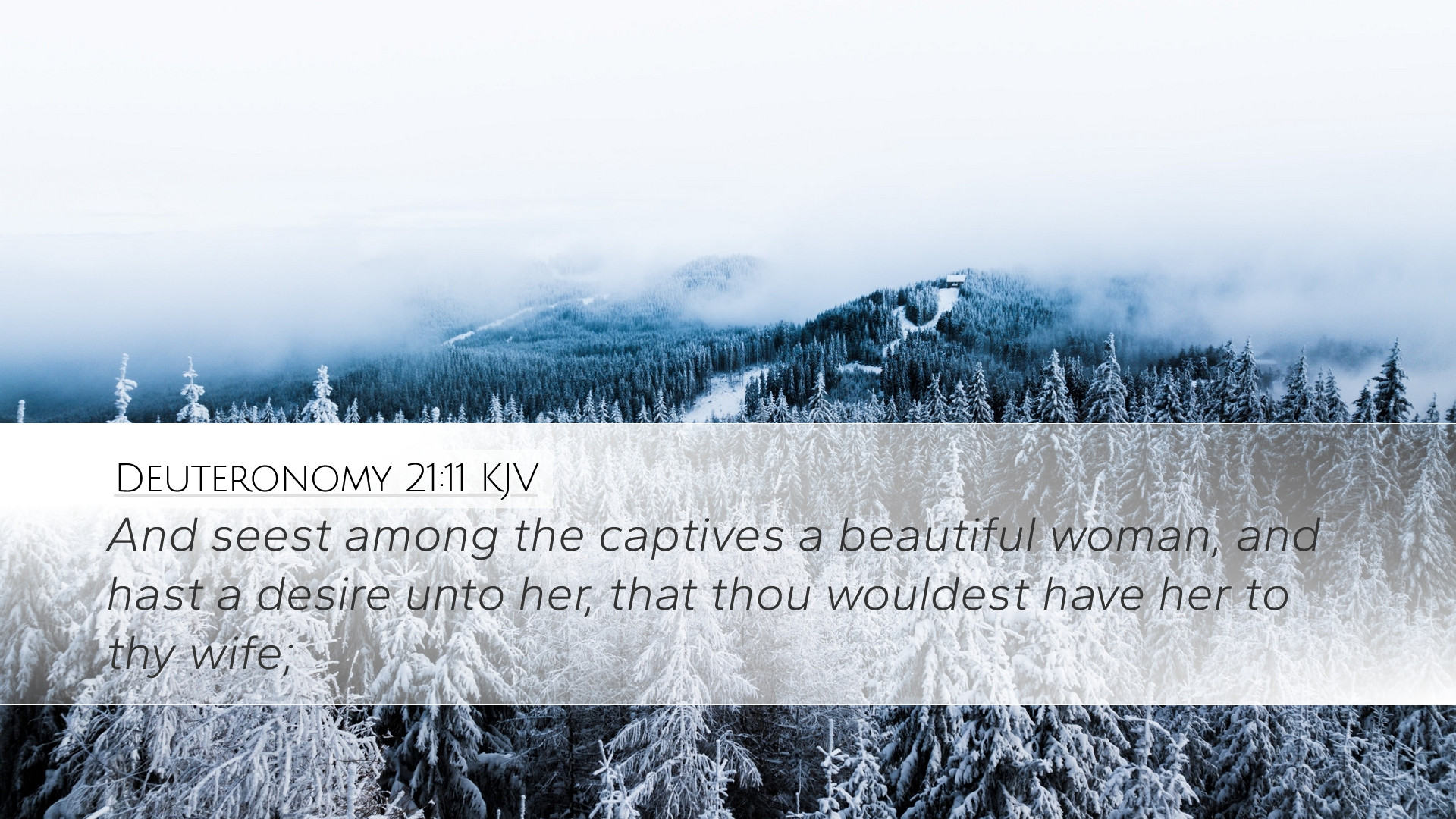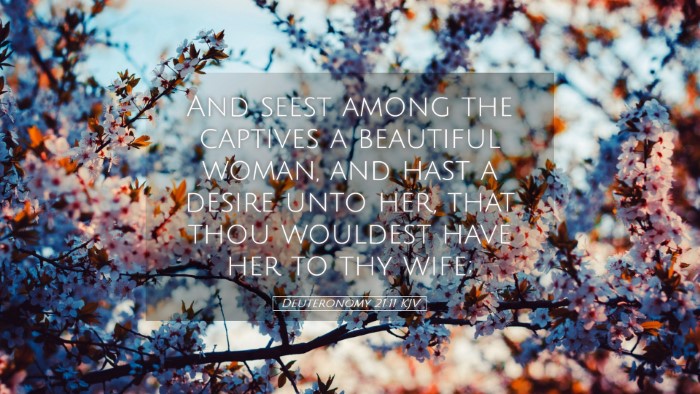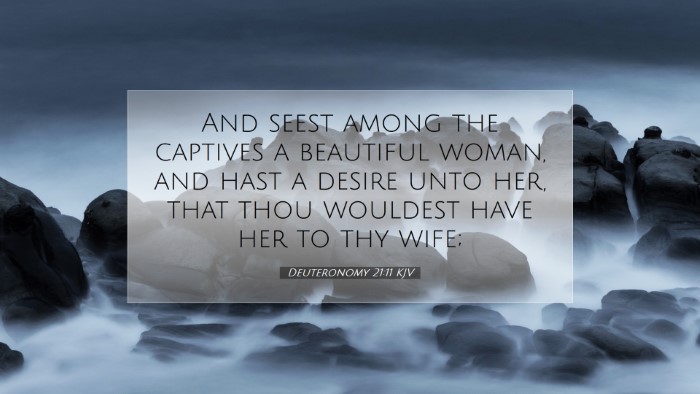Commentary on Deuteronomy 21:11
Verse: "And seest among the captives a beautiful woman, and hast a desire unto her that thou wouldest have her to thy wife."
Introduction
This verse reflects significant cultural and legal practices regarding marriage and captivity in ancient Israel. The discussion surrounding this verse reveals insights into the character of God, the rights of individuals, and the principles of justice and compassion that were to guide the Israelites.
Contextual Background
Deuteronomy is primarily a collection of Moses' speeches to the Israelites as they prepare to enter the Promised Land. The laws articulated in this book are intended to govern both the spiritual and social behavior of the people, ensuring they live in alignment with God's covenant. Deuteronomy 21 addresses various issues of military conduct and humanitarian considerations in times of war.
Totality of God's Law
Matthew Henry's Insight: Henry emphasizes the holistic nature of God's law, which goes beyond mere regulations. It serves moral and ethical ends, ensuring that actions align with the character of God. This law regarding a captive woman shows that God considers the dignity of every individual, even in the context of warfare.
On Captivity and Marriage
Adams Clarke's Commentary: Clarke elaborates on the circumstances under which an Israelite man may take a captive woman as his wife. He notes that this command is not a divine sanction for acting solely on desire but introduces specific regulations meant to provide protection and honor for the woman involved.
- Compassion and Duty: The text reflects a balance between personal desire and ethical obligations. A man must consider the woman's dignity in the process of marriage rather than treating her as mere property.
- Provisions for the Woman: The stipulations outlined in subsequent verses (Deuteronomy 21:12-14) focus on giving the woman space to mourn and ensuring her rights are taken into account.
Theological Implications
Albert Barnes' Perspective: Barnes posits that the provision for a captive woman to become a wife exemplifies God's sovereign grace interacting with human situations. While warfare leads to despair, God offers a semblance of hope and restoration for captives, suggesting that even in dire circumstances, His will works towards redemption.
Comparative Analysis
In interpreting this passage, it is crucial to compare it with other scriptural references addressing marriage, captivity, and interpersonal relationships.
- Ruth and Boaz: The narrative of Ruth illustrates the complexities of companionship across cultural lines, rooted in kindness and mutual respect.
- Jesus' Teachings: The New Testament redefines marriage and relationships emphasizing love, consent, and mutual respect, which echoes the underlying principles found in the laws of Deuteronomy.
Cultural Considerations
Understanding the historical and cultural backdrop is vital. Ancient Near Eastern societies had different norms concerning marriage, captivity, and women's roles. The Israelites were instructed to operate within their cultural context while holding onto the standards set by God, thus distinguishing themselves as a holy nation.
The Role of Desire
Henry's Reflection: Henry points to the natural human inclination to desire beauty. However, he stresses that these desires must be governed by righteousness and the intention to honor the other person. This reflects a broader moral lesson about the nature of desire and the moral framework within which it must operate.
Conclusion
The examination of Deuteronomy 21:11 invites pastors, students, theologians, and Bible scholars to explore deeper themes of dignity, compassion, and the evolving understanding of interpersonal relationships. In an age where historical practices can clash with contemporary moral understanding, this verse serves as a reminder of the need for a heart that seeks justice and love in all relationships.


